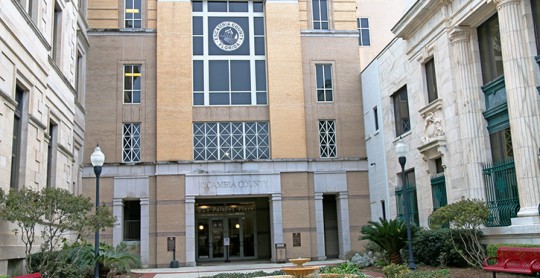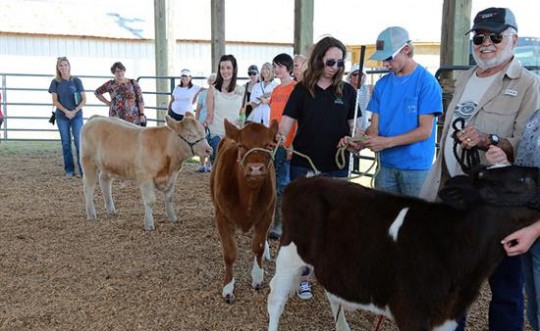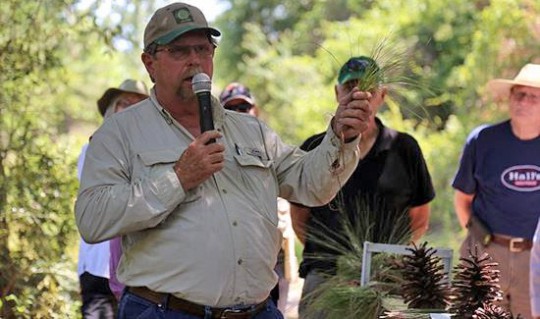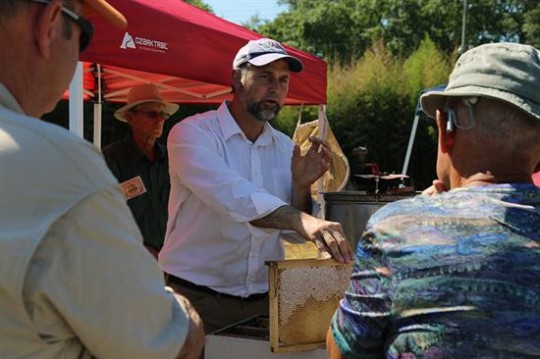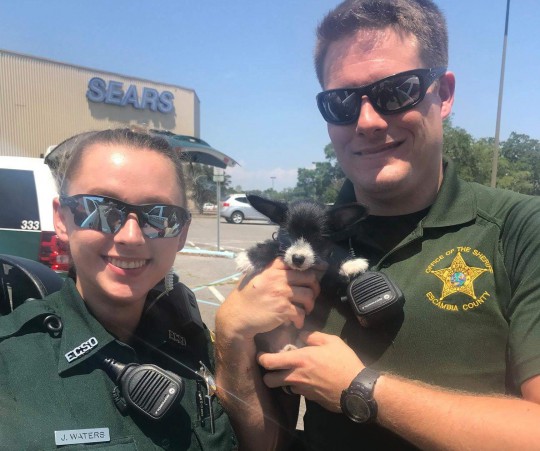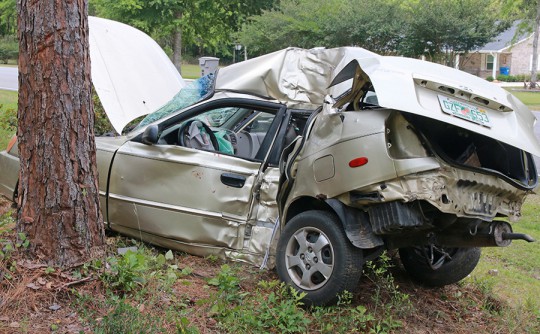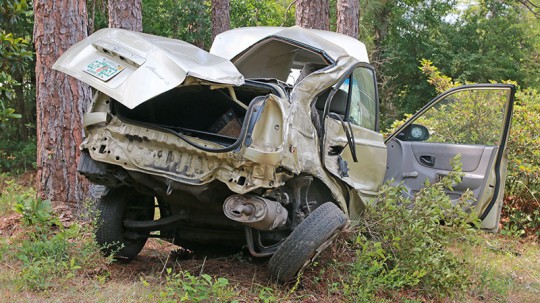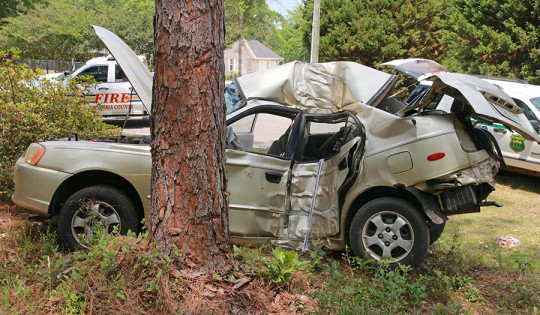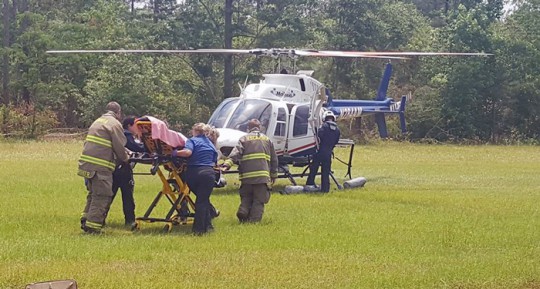This Week’s Escambia County Meeting Schedule
May 15, 2018
Here is a schedule of Escambia County public meetings through Friday:
Tuesday, May 15
- Board of Electrical Examiners – 9 a.m., Escambia County Central Office Complex, 3363 West Park Place
- Environmental Enforcement Special Magistrate – 1:30 p.m., Escambia County Central Office Complex, 3363 West Park Place
Wednesday, May 16
- Board of Adjustment – 8:30 a.m., Escambia County Central Office Complex, 3363 West Park Place.
- Development Review Committee – 1 p.m., Escambia County Central Office Complex, 3363 West Park Place.
Thursday, May 17
- Community Redevelopment Agency (Agenda) & Board of County Commissioners Agenda Review – 9 & 9:15 a.m., Ernie Lee Magaha Government Building, Board Chambers, 221 Palafox Place
- BCC Public Forum – 4:30 p.m., Ernie Lee Magaha Government Building, Board Chambers, 221 Palafox Place
- BCC Regular Meeting – 5:30 p.m., Ernie Lee Magaha Government Building, Board Chambers, 221 Palafox Place
Judge Rules Against Use Of ‘Jane Doe’ In NRA Lawsuit
May 15, 2018
Expressing sympathy for her plight, a federal judge nevertheless turned down a request by the National Rifle Association to keep the identity of a 19-year-old Alachua County woman secret in a challenge to a state law that raised from 18 to 21 the minimum age to purchase rifles and other long guns.
Lawyers for the NRA late last month asked U.S. District Judge Mark Walker to keep the identity of “Jane Doe” secret, based in large part on a declaration filed by the gun-rights group’s Florida lobbyist Marion Hammer, who detailed threatening emails she had received featuring derogatory words for parts of the female anatomy.
 “If it were entirely up to this court, this court would not hesitate to grant the NRA’s motion. One need only look to the harassment suffered by some of the Parkland shooting survivors to appreciate the vitriol that has infected public discourse about the Second Amendment. And this court has no doubt that the harassment goes both ways; Ms. Hammer’s affidavit proves just that,” wrote Walker, who in a footnote called the messages sent to Hammer “hateful and abhorrent” and of such an “offensive nature” that he would not repeat them in his order.
“If it were entirely up to this court, this court would not hesitate to grant the NRA’s motion. One need only look to the harassment suffered by some of the Parkland shooting survivors to appreciate the vitriol that has infected public discourse about the Second Amendment. And this court has no doubt that the harassment goes both ways; Ms. Hammer’s affidavit proves just that,” wrote Walker, who in a footnote called the messages sent to Hammer “hateful and abhorrent” and of such an “offensive nature” that he would not repeat them in his order.
“People — especially teenagers — should not have to subject themselves to threats of violence, continued harassment, and a concerning amount of public scrutiny just to share their views about the Second Amendment (whatever those views may be),” he added.
But the judge said he was hamstrung by previous court decisions, which forced him to deny the request to keep secret the identities of Jane Doe and John Doe, a 19-year-old man who is also a part of the case.
Based on precedent, “this court finds that mere evidence of threats and harassment made online is insufficient to outweigh the customary and constitutionally-embedded presumption of openness in judicial proceedings,” Walker wrote. “This is especially true where the targets of such threats and harassment are not minors and where the subject at issue does not involve matters of utmost intimacy.”
The debate over the pseudonyms came in a lawsuit filed on March 9 by the NRA, just hours after Gov. Rick Scott signed into law a sweeping school-safety measure that included new gun-related restrictions. The legislation was a rapid response to the Feb. 14 shooting at Parkland’s Marjory Stoneman Douglas High School that left 17 students and faculty members dead and 17 others wounded.
The law raised from 18 to 21 the minimum age to purchase rifles and other long guns. It also imposed a three-day waiting period on the sale of long guns, such as the AR-15 semiautomatic rifle 19-year-old Nikolas Cruz last year legally purchased and is accused of using in the Valentine’s Day massacre at his former high school.
In late April, the NRA filed a motion to add “Jane Doe” as a plaintiff to the lawsuit, which contends the age restriction in the new law “violates the fundamental rights of thousands of responsible, law-abiding adult Florida citizens and is thus invalid under the Second and Fourteenth Amendments.”
The NRA asked Walker to allow the woman to remain anonymous due to fear that public exposure could result in “harassment, intimidation, and potentially even physical violence.”
But, representing the state, lawyers for Attorney General Pam Bondi argued the request for anonymity “does not provide a sufficient basis for overcoming the strong presumption in favor of open judicial proceedings.”
Suggesting that the courts have not kept up with the times, a reluctant Walker agreed.
The 11th U.S. Circuit Court of Appeals, which hears appeals from Florida, “has made it clear that pseudonyms may only be used in ‘exceptional’ cases … and that there is ‘a strong presumption in favor of parties’ proceeding in their own names,’ ” the judge wrote in a 17-page opinion Sunday.
Walker gave the NRA until May 21 to file an amended complaint, without the pseudonyms.
“We are of course disappointed by the court’s ruling. Just as in Roe vs. Wade, individuals should be able to stand up for the Second Amendment without having to expose themselves to harassment and bullying,” Hammer, a former president of the national gun-rights organization, said.
Courts historically have relied on three factors to determine whether to keep parties’ identities private, including whether they will be “required to disclose information of the utmost intimacy,” a standard that involves issues such as abortion, prayer and personal religious beliefs, Walker wrote.
“One would think that the standard covers more, but apparently it doesn’t,” the judge noted, pointing out in a footnote that courts have denied the use of pseudonyms in cases involving sexual assault.
The NRA also could not show that two other factors — whether the plaintiffs were seeking anonymity to challenge government activity, or whether they needed the pseudonyms because they intended to engage in illegal activity that could result in prosecution — weighed in favor of anonymity, Walker wrote.
But, expressing sympathy for Jane and John Doe, the factors laid out in the previous decisions fail to take into account “concerns about the potential harassment and threats they face,” Walker wrote.
“To be clear, this court does not intend to diminish those concerns,” he added.
Saying that his discretion was limited, the federal judge relied heavily on a 1981 decision, in a case known as Doe v. Stegall, in which a mother sued over “religiously-oriented ceremonies” being conducted at her children’s middle school in Mississippi.
The mother asked that she and her two children be permitted to proceed under fictitious names out of fear of harassment and violence, using remarks made at a local school-board meeting as evidence of the potential danger her family faced.
“Some of the comments voiced at the meeting appear to be just as hateful as the emails Ms. Hammer attached to her affidavit in this case,” Walker noted.
A district court ruled against the mother, but a federal appellate court struck down the decision, saying the plaintiffs’ identities should be kept secret — but not because of the potential harm that the family could incur, Walker wrote. The court’s ruling was based on other factors, such as “religious belief” and the ages of the minor children. In contrast, Jane and John Doe are both 19 years old, Walker pointed out.
“True, they are still young, but maybe not quite so young that they share the same ‘special status and vulnerability’ that the ‘child-litigants’ in Stegall had,” the judge wrote.
But Walker also cautioned that “a lot has changed in society” since the Stegall case was decided more than three decades ago.
“Today we have the internet, social media, and the 24-hour news cycle. What this means is that if a person attaches their name to a lawsuit — and especially if that lawsuit is sensational — then everyone will quickly be made aware of it. Articles get posted online, and the responding comments, tweets, and whatever-else-have-yous often devolve into a rhetorical barrage of hate. Unfortunately, it seems the internet just doesn’t always bring out the best in us,” he wrote.
“Maybe the law should be modified to reflect these changes. But it’s not this court’s job to change the law; this court’s job is to apply the law,” Walker wrote. “And the law unfortunately directs that the NRA’s motion must be denied.”
by Dara Kam, The News Service of Florida
Over 100 Attend Annual Escambia County Farm Tour
May 15, 2018
Over 100 people took part in this year’s Escambia County Farm Tour, getting a first look at five locally owned farms and their relationship to the economy, the community and Escambia County.
The tour made its first t stop at Renfroe Pecan Company on West Fairfield Drive. Tour participants were treated to a guided, behind-the-scenes view of pecan sorting, processing and packaging, along with an exclusive after-hours walk through the retail store.
The tour continued along West Fairfield Drive, stopping at Johnson’s Beekeeping and Escarosa Beekeepers Association, where participants were able to view the honey harvesting process, from hive to jar. Honeycomb and interactive educational portions of honey bee habitats were also on view.
“This year we tried to highlight alternative agriculture,” said Nick Simmons, Escambia County Extension Services Director and member of the Farm Tour Committee. “We were excited to be able to highlight agriculture in more of an urban setting. Everything on this tour was south of I-110 and everything was within roughly a 10-mile radius of the county Central Office Complex and the downtown area.”
The tour also stopped at one of Pensacola Bay Oyster Farm’s downtown locations, Jenkins Timber Properties near Perdido Bay and finally at the fairgrounds to see view youth livestock projects and watch a mock livestock competition involving three calves of varying ages and breeds.
“We received a lot of positive feedback this year,” Simmons said. “One of the things we heard a lot from people, is that they’ve been on the tour before or lived in this community for a long time and had never heard or seen a lot of the places we took them to, even though the sites are not far from their own homes.”
New Ambulance Service In Flomaton, Replaces Escambia (FL) EMS
May 15, 2018
For the first time in 37 years, Escambia County (FL) EMS is no longer the primary first responding ambulance service in the Flomaton area. Monday, Medstar EMS (owned by Lifeguard) took over those duties on Monday after reaching an agreement with the the Escambia County (AL) Healthcare Authority (ECHA).
Escambia County (FL) EMS had provided the primary ambulance service in Flomaton since 1981. The move came about after Escambia County expanded their primary service area to include an ambulance stationed in Walnut Hill.
The Escambia County (FL) EMS unit that normally serves Flomaton is stationed in Century, and that unit will remain based in Century, according to Mike Weaver, Escambia County Public Safety Director, and there will be a mutual aid agreement in place between Escambia County and Lifeguard.
Lifeguard is the exclusive ambulance service in Santa Rosa County, operates under the MedStar name in Baldwin County, AL, and provides ambulance services in several other cities including Mobile and Birmingham, AL; Bay County, FL; and Chattanooga, Knoxville and Nashville, TN.
Pictured: A Medstar EMS unit Monday at the Flomaton Fire Department. Photo for NorthEscambia.com, click to enlarge.
Supreme Court Gambling Ruling Not A Winning Ticket In Florida
May 15, 2018
A U.S. Supreme Court decision viewed as a major win for the gambling industry opened the door to sports betting in states across the country, but Florida almost certainly won’t be one of them — at least for now.
Monday’s decision in Murphy v. National Collegiate Athletic Association, a case the state of New Jersey brought as a challenge to a law known as the Professional and Amateur Sports Protection Act, found that a federal ban on state-sanctioned sports betting is unconstitutional.
 As the Supreme Court considered the case, some states filed legislation to authorize lucrative sports betting in anticipation of the federal law being struck down.
As the Supreme Court considered the case, some states filed legislation to authorize lucrative sports betting in anticipation of the federal law being struck down.
But in Florida, two major obstacles — a ballot initiative and the need for a special legislative session — stand in the way of joining states such as Mississippi and Pennsylvania, which have cleared the decks to allow gamblers to bet on professional and collegiate sports teams as soon as the NFL season begins in the fall.
A proposed constitutional amendment on the November ballot will allow Florida voters to decide if they want to control decisions about gambling, something now largely left up to the Legislature. If Amendment 3 passes, voters statewide would have to sign off on future gambling expansions.
Sen. Bill Galvano, the Bradenton Republican who has been a lead negotiator on gambling issues for several years, told The News Service of Florida on Monday the high court ruling won’t have an immediate impact on Florida, where sports betting is illegal.
“The ruling does not automatically change the gaming landscape in Florida,” said Galvano, a lawyer who will take over as Senate president after the November elections. “I believe it will create more interest in pursuing some types of sports betting, on behalf of the pari-mutuels as well as the (Seminole) tribe and some independent entities. But all of that is overshadowed by the pending constitutional amendment, which may create tremendous obstacles for any type of sports betting to come into the state.”
Galvano and his House counterpart, Miami Lakes Republican Jose Oliva, last month raised the possibility of a special session to address perpetually elusive gambling issues but abandoned the notion after Gov. Rick Scott secured a yearlong gambling deal with the Seminole Tribe. The agreement is focused on the tribe’s promise to continue making payments to the state in exchange for “exclusivity” over “banked” card games, such as blackjack.
A special session in reaction to Monday’s court decision is “very unlikely,” Galvano said.
Florida’s gambling operators could lose out on big bucks if the state doesn’t get into the sports-betting game.
“The economic impact of allowing sports betting cannot be understated: Legal sports betting in Las Vegas takes in over $5 billion each year, and most estimates put the value of illegal sports betting in the United States at up to $100 billion,” Amy Howe wrote on the SCOTUSblog website, which closely covers Supreme Court cases, after Monday’s decision.
Sports gambling is “a benefit for anybody with a tourist-based economy,” Marc Dunbar, an attorney who represents the gambling industry and who teaches gambling law at Florida State University, told the News Service.
“Florida’s going to miss out. Mississippi is going to implement it, and it’s going to benefit the Biloxi casinos on the coast. Unfortunately, our hoteliers and our resorts and casinos won’t be able to benefit from that,” he said.
The proposed constitutional amendment would make it harder for Floridians to have sports gambling, said Dunbar, a Tallahassee-based partner with the law firm Jones Walker.
“This would probably be another reason why folks should vote against Amendment 3. If you want to have sports gambling in Florida, you probably want to vote no on Amendment 3,” he said.
But John Sowinski, the chairman of Voters in Charge, a political committee behind the amendment, called the court ruling another reason to support the proposed constitutional amendment because the measure would give voters a say in gambling activities.
“A lot of people in Florida would be relieved to know that, if we’re going to have sports gambling in this state, it’s going to happen by design of Florida voters, not by Tallahassee politicians and gambling lobbyists,” he said.
If the amendment doesn’t pass, sports betting will become an integral component of the Legislature’s discussions about thorny gambling issues, which some have likened to a three-dimensional game of chess even without the latest gambling twist.
“I’m just letting things play out. We’ll see what happens in November,” Galvano said.
by Dara Kam with contribution from Tom Urban, The News Service of Florida
Quick Look: This Year’s Graduation Dates And Times
May 15, 2018
Mark you calendars – graduation dates for the Class of 2018 have been scheduled for high schools in Escambia County.
The schedule is as follows:
May 18 – 6:00 p.m. Escambia Westgate School at B.T. Washington High School
May 19 – 4:00 p.m. Northview High School at Northview High School
May 21 – 11:00 Camelot Academy at First Baptist Church of Warrington
May 21 – 6:00 p.m. Judy Andrews (Second Chance) at Pensacola High School
May 24 – at Pensacola Bay Center:
11:00 a.m. J.M. Tate High School
2:30 p.m. West Fla. High School
6:00 p.m. Pine Forest High School
May 25 – at Pensacola Bay Center:
11:00 a.m. Escambia High School
2:30 p.m. Pensacola High School
6:00 p.m. B.T. Washington High School
Tryouts Set For Northview Summer Softball
May 15, 2018
Northview High School will hold summer ball tryouts Wednesday and Thursday for girls interested in playing softball. Incoming ninth graders through the twelfth grade are eligible. Tryouts will be held on the softball field at 3:45 p.m. For more information, contact Coach Holland at (850) 327-6681.
Eighth Inning Homer Sinks Wahoos, 4-1
May 15, 2018
Jake Gatewood belted a three-run home run in the bottom of the eighth inning to give the Shuckers a 4-1 lead, and eventual win over the Blue Wahoos Monday night at MGM Park.
 Anthony DeSclafani and Michael Lorenzen made Major League rehab appearances ahead of Jesus Reyes, the Blue Wahoos scheduled starter. Both dazzled starting with three perfect innings from DeSclafani. He struck out four. The game started with rain falling, and after back to back strikeouts in the bottom of the first the game was delayed for 21 minutes. DeSclafani returned after the delay without any issues.
Anthony DeSclafani and Michael Lorenzen made Major League rehab appearances ahead of Jesus Reyes, the Blue Wahoos scheduled starter. Both dazzled starting with three perfect innings from DeSclafani. He struck out four. The game started with rain falling, and after back to back strikeouts in the bottom of the first the game was delayed for 21 minutes. DeSclafani returned after the delay without any issues.
Lorenzen pitched his scheduled one inning and worked around a leadoff single in the fourth. He struck out one without a walk and left the game scoreless.
Shed Long broke the scoreless tie with a leadoff home run in the sixth inning. Biloxi took advantage of a pair of errors to tie the game at 1-1 in the bottom of the seventh. Then in the eighth inning, Reyes issued a one-out walk to Corey Ray who advanced to second on a wild pitch. After a shallow fly out, the Blue Wahoos intentionally walked Lucas Erceg to set up a right on right matchup with Jake Gatewood. Gatewood launched a line drive home run just inside the left field foul pole which proved to be the difference in the game.
Reyes (L, 0-7) finished the final four innings and was charged with four runs, three earned, with three walks and four strikeouts.
Shuckers starter Zack Brown took a no decision after seven strong innings. He allowed just one run on three walks and five strikeouts. Quentin Torres-Costa (W, 1-0) got the win after working a scoreless eighth inning. Southern League Saves leader Nate Griep (S, 15) finished the game with a 1-2-3 ninth to nail down the win and give Biloxi a 2-1 edge in the series.
Pensacola will look to even the series on Tuesday night. The Blue Wahoos will send RHP Vladimir Gutierrez (1-5, 5.45) to the mound against Shuckers RHP Adrian Houser (0-0, 4.34).
Deputies Rescue Puppy From Hot Car; Man Arrested
May 14, 2018
Escambia County deputies saved a puppy from a hot car Saturday near Sears on Davis Highway.
 Deputy Sheriff Matheny and Deputy Sheriff Trainee Waters responded to a call of a puppy locked in a hot vehicle.
Deputy Sheriff Matheny and Deputy Sheriff Trainee Waters responded to a call of a puppy locked in a hot vehicle.
The driver of the vehicle could not be located and the puppy was squealing, panting heavily, and in distress. The outside temperature was reported to be 92 degrees at the time.
Matheny broke the driver’s side window to rescue the pup. Waters gave the dog water and placed her in a cool patrol car until Escambia County Animal Control arrived and took custody.
Deputies later found and arrested the owner of the vehicle. William Sparkman, 25, was charged with an animal offense. He was released from the Escambia County Jail on a $1,000 bond.
Driver Airlifted After Hitting Tree In Molino
May 14, 2018
A driver was seriously injured in a single vehicle wreck in Molino Monday morning.
The male lost control on Pilgrim Trail Road off Highway 97, left the roadway and struck a brick mailbox before hitting a large pine tree. He was airlifted to Sacred Heart Hospital in Pensacola.
The accident remains under investigation by the Florida Highway Patrol.
The Molino and Walnut Hill stations of Escambia Fire Rescue and Escambia County EMS responded to the crash.
NorthEscambia.com photos, click to enlarge.


